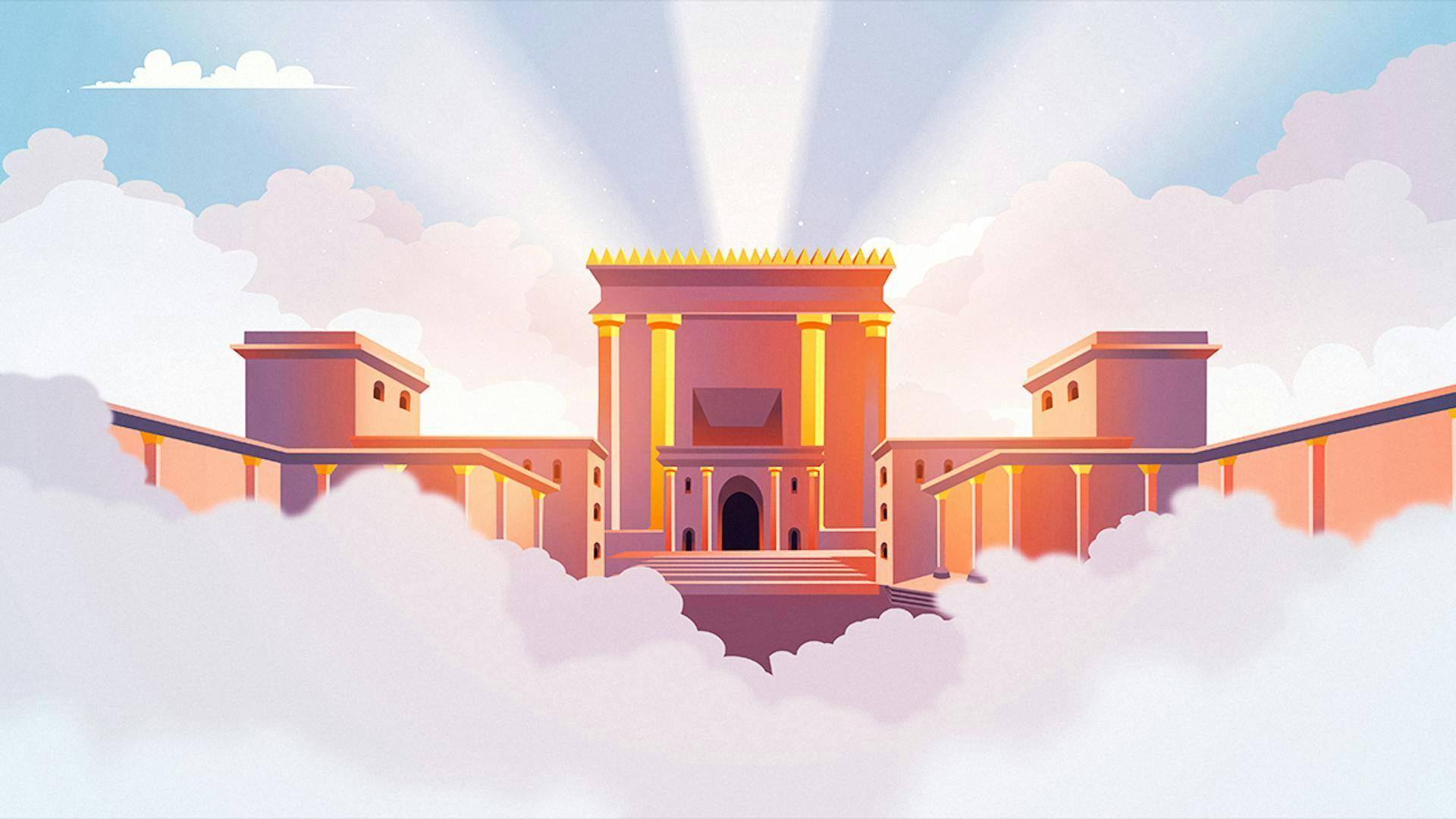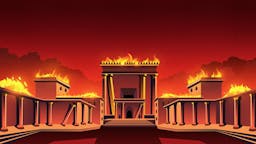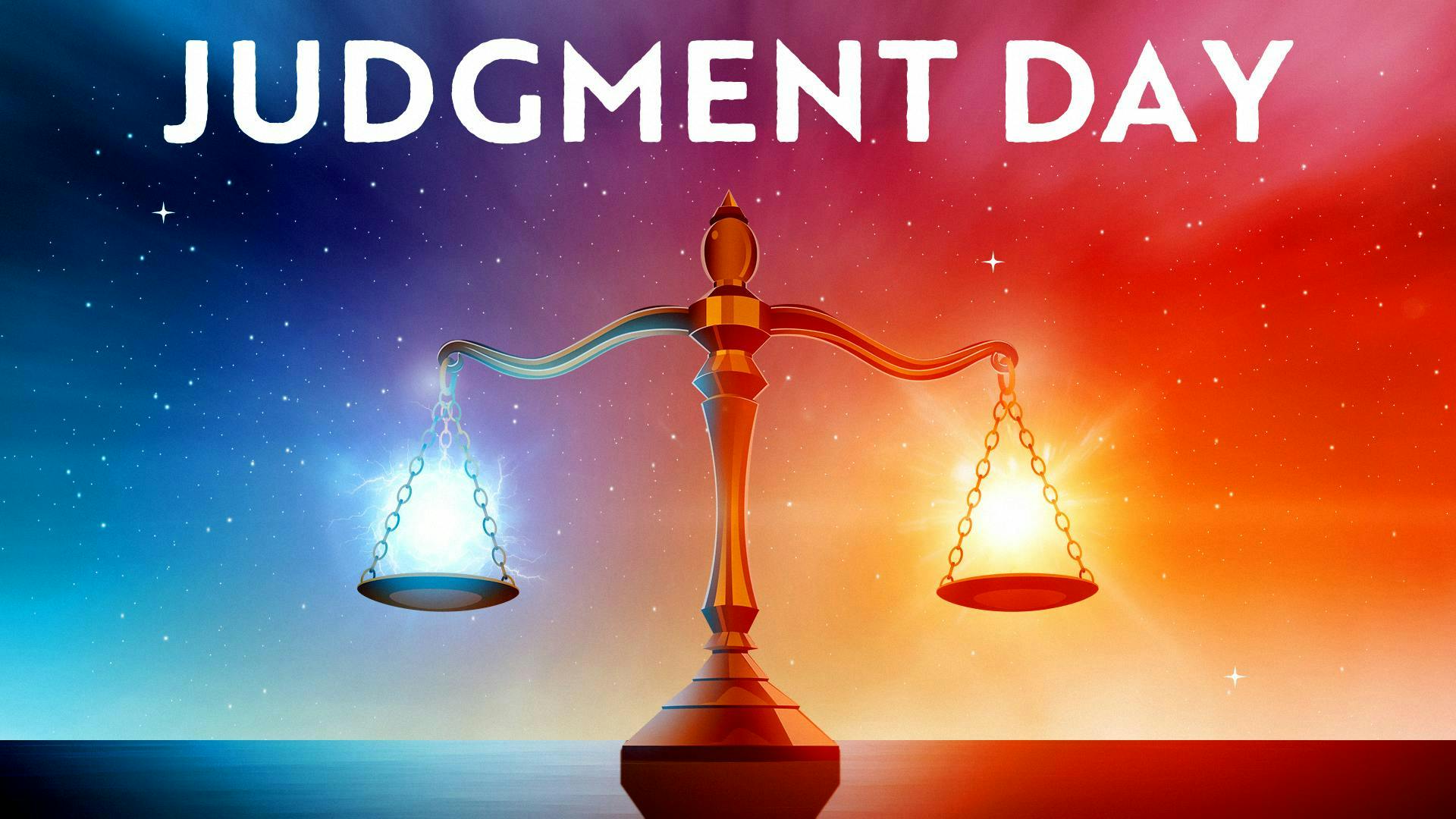Tisha B'Av and the Messiah: Uncovering Hidden Potential
How the saddest day in Jewish history nearly heralded the Messianic Age
By Danielle Fisher | 8 August 2024 | 5 Minute Read

Looking for more?
We have hours of delightful videos and podcasts to enhance your Yamim Noraim experience.
Tisha B’Av: A Time to Mourn, or Celebrate?
Tisha B’Av is not exactly a day most of us look forward to; in fact, it’s known as the saddest day of the Jewish calendar. But what if it didn’t have to be that way? What if, instead of being a day of tragedy and mourning, it was a day of celebration, when war became a distant memory and awareness of G-d’s greatness spread across the world? It turns out, there was a moment in Jewish history where we almost achieved this idyllic vision. What was that pivotal moment—and how did it go wrong?
Jeremiah’s Hints of Redemption
Perhaps we can find a clue about what Tisha B’Av could have been by examining the central text of the day: the Megillah of Eicha, or Lamentations. Composed by the prophet Jeremiah, Eicha chronicles the Babylonian destruction of Jerusalem. It’s a mournful megillah, filled with regret and longing. Even the name of the Megillah and its central refrain, “eicha,” or “how,” evokes a sense of missed opportunity. Eicha? Jeremiah wails. How could this have happened? How could this be?
But if we look at the words Jeremiah uses to describe Israel’s exile, we’ll notice some peculiar echoes to an earlier time in Jewish history. Come along with me to Eicha 1:3:
Galta yehuda me’oni u’merov avodah; hi yashva ba’goyim
—Judah went into exile because of oppression and great servitude; she settled among the nations.
The people of Israel, condemned to live in a foreign land, where they suffer oppression and servitude… ring any bells? Let’s continue.
Kol rodfeyah hisiguya, bein ha’metzarim
—all of her pursuers caught up to her, between the narrow straits.
The Israelites’ oppressors catching up to them, cornering them. Where else have we heard this before? Turns out, these words are the exact same words the Torah uses to describe Israel’s enslavement in Egypt and the miraculous Exodus. And that term Jeremiah uses to describe where Israel’s enemies caught her—“bein hametzarim—between the narrow straits”? It sounds a lot like another word: mitzrayim, Egypt.
For some reason, Jeremiah is leading us to make a connection between the Exodus story—Israel’s greatest redemption—and the destruction of the Temple in Jerusalem—Israel’s greatest tragedy. But why might that be?
The Destruction of Jerusalem: A Failed Exodus?
If we examine these two periods more closely, the Israelites’ enslavement in Egypt and the Babylonian conquest of Jerusalem followed nearly identical paths—exile, oppression, and servitude. Yet one ended in redemption, and the other in tragedy. Perhaps if we identify that point where their paths diverged, we can figure out what went right in the Exodus and what went wrong in the conquest of Jerusalem.
Let’s go back to the pivotal moment of the Exodus. The Israelites are standing at the Sea of Reeds. In front of them, the waves glint menacingly. Behind them– the Egyptians gallop on horses, weapons drawn. The Israelites are trapped. It looks like the end. Either the Egyptians capture them, or they drown. And then, Moses raises his staff and G-d splits the sea. Suddenly, they have a path towards freedom. They cross the sea on dry land and see their pursuers dead behind them. They’re safe; they’re free! Yet it’s easy to see where the Exodus could have gone wrong. It was that one pivotal moment—G-d’s splitting of the sea—which transformed the Exodus into the miraculous moment we know it as today.
By using the same exact words to describe the destruction of Jerusalem as the Torah uses to describe the Israelites’ pivotal moment at the Sea of Reeds, Jeremiah appears to be suggesting that the conquest of Jerusalem, too, could have ended as another Exodus—if not for another key moment.
King Hezekiah: The Almost-Messiah
What is that key moment that Jeremiah has in mind? If Moses was the redeeming figure of the generation of the Exodus, who had the potential to be the redeeming figure during the conquest of Jerusalem?
Scanning back through the last few generations before the destruction of Jerusalem paints a pretty grim picture. The Jewish people fell prey to idol worship; infighting divided the people. The first glimmer of hope came with a fascinating figure—King Chizkiah, or Hezekiah in English. While both his father, Achaz, and his son, Menashe, are infamous for their wickedness, Chizkiah himself was pretty great. The Book of Kings describes Chizkiah as someone who trusted in G-d, who did what was right in G-d’s eyes, and who did not stray. Everything his father had done wrong, Chizkiah worked to rectify. Achaz tried to align himself with Israel’s enemy, Assyria; Chizkiah defied the Assyrian king. Achaz shuttered the doors of the Temple; Chizkiah not only re-opened the doors, but overlaid them with gold. Achaz worshiped idols; Chizkiah smashed the idols and purified the Temple.
And all of the divisions Achaz had instigated within the Jewish people, Chizkiah set about mending. He gathered together the Kohanim and Leviim and convinced them to join him in recommitting to a covenant with G-d. He offered communal offerings with the heads of Jerusalem and thanksgiving offerings with the commoners. He even reached out to rebellious tribes of Ephraim and Menashe, who had betrayed and attacked his father’s kingdom, and invited them to celebrate Pesach with the Kingdom of Judah. It was as though he was reaching further and further out, encompassing everyone he could in the service of G-d, while at the same time reaching further and further back in time, mending the mistakes of the past.
The Sages say that Chizkiah was so great that he could have been the Messiah. Instead, he brought about the first prophecy of Israel’s destruction. In “Tisha B’Av: The Messiah That Almost Was,” Rabbi Fohrman explores Chizkiah’s fatal mistake, revealing the fascinating potential latent in one moment that could have transformed the course of history.
Tisha B'Av Videos

How Am I Supposed To Appreciate The Loss Of The Beit HaMikdash?
Video series • Part 1 of 7 • 9 min
It’s one thing to mourn the suffering of actual people, but how are we supposed to feel genuinely sad over the loss of a building?

What Rachel Imeinu Teaches Us About Mourning
Video series • Part 1 of 5 • 8 min
Mourning on Tisha B’Av may begin with the Temple, but it cannot end there. The familial conflict between Rachel and Leah offers a powerful lesson on how we can take the first steps towards fixing our national tragedy by addressing our personal relationships.

Tisha B'Av After October 7th
Video series • Part 1 of 5 • 14 min
We still live in the shadow of October 7th. In many ways it makes Tisha b’Av feel more real. And yet, we still feel a gap from all the tragedies of the distant past that we are also meant to feel. How are we meant to bridge that gap?

Kamtza And Bar Kamtza: What Is Baseless Hatred, Anyway?
Video series • Part 1 of 5 • 3 min
When was the last time that you hated someone for absolutely no reason? Could it be we’ve been misunderstanding the true meaning of “baseless hatred” this whole time?

How Israel Split And The Road To Tisha B’Av
Video series • Part 1 of 8 • 7 min
God gave King Solomon unprecedented wisdom, which Solomon used to build a glorious kingdom. But just a mere generation later, that kingdom splits and the road to Tisha B’Av begins. Why didn’t God give Solomon the wisdom he really needed… the wisdom to keep Israel united?
What is Aleph Beta?
Aleph Beta is a unique kind of Torah library. Led by our founder, Rabbi David Fohrman, we are dedicated to high-level, textual Torah learning for adults that is intellectually and spiritually sophisticated, that enlivens your Jewish practice and helps you forge a deeper connection to God. Whether you’ve been learning in yeshiva for years or you’re just beginning your Torah journey, you’re sure to find something meaningful and surprising waiting for you here.
Browse our library of over 1,000 beautifully produced animated videos, podcasts, deep dive courses, and printable guides. Topics include the weekly parsha, Jewish holidays & fast days, laws & mitzvot, prayers, relationships, big philosophical ideas and more. Have something to say at the Shabbos table that will amaze your family and guests and bring deep meaning into their lives.






